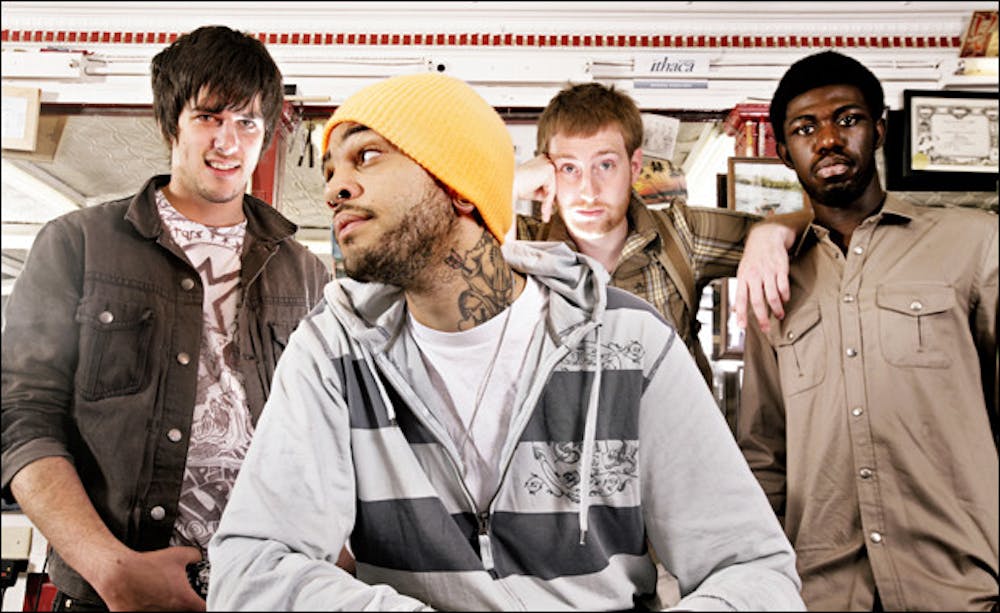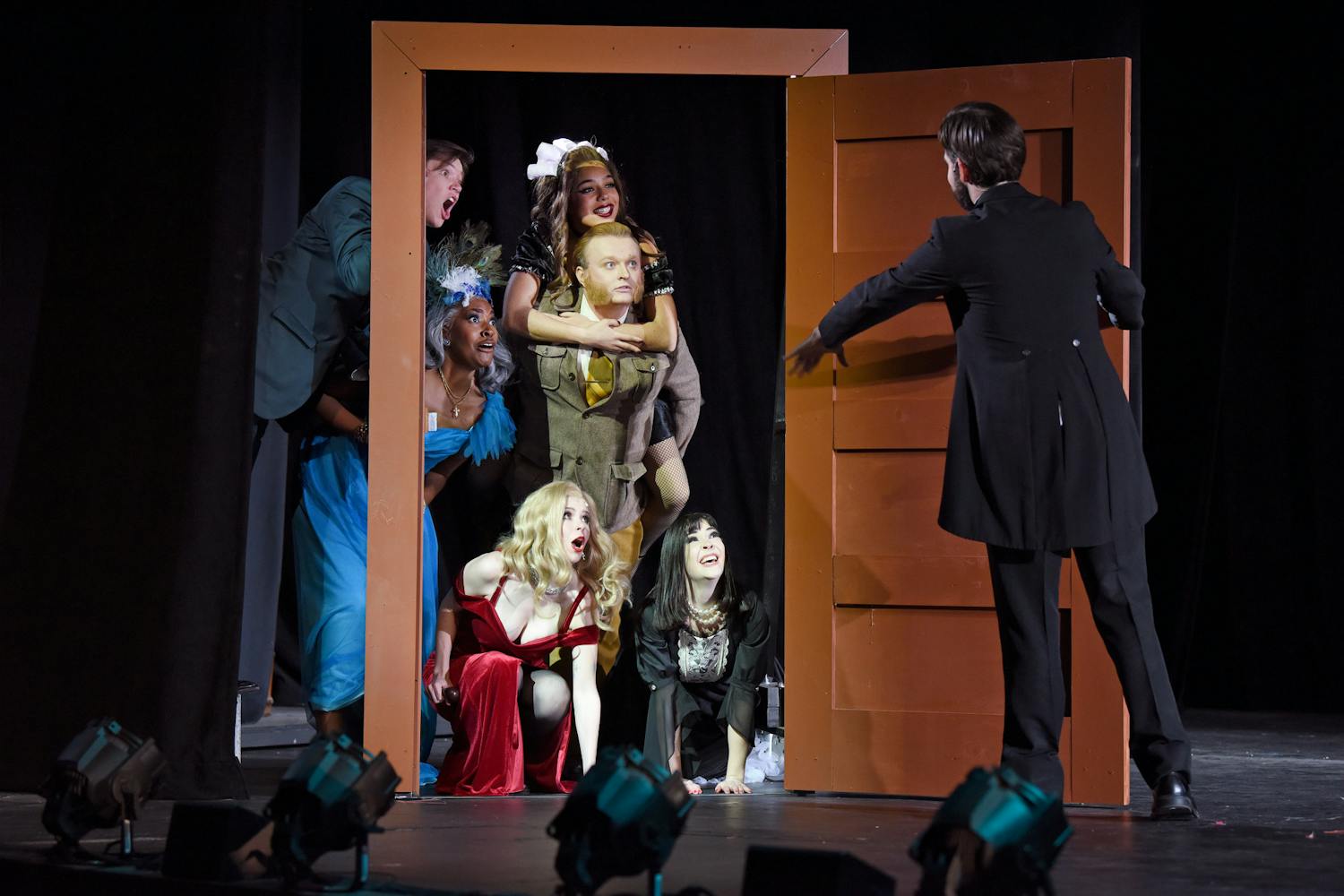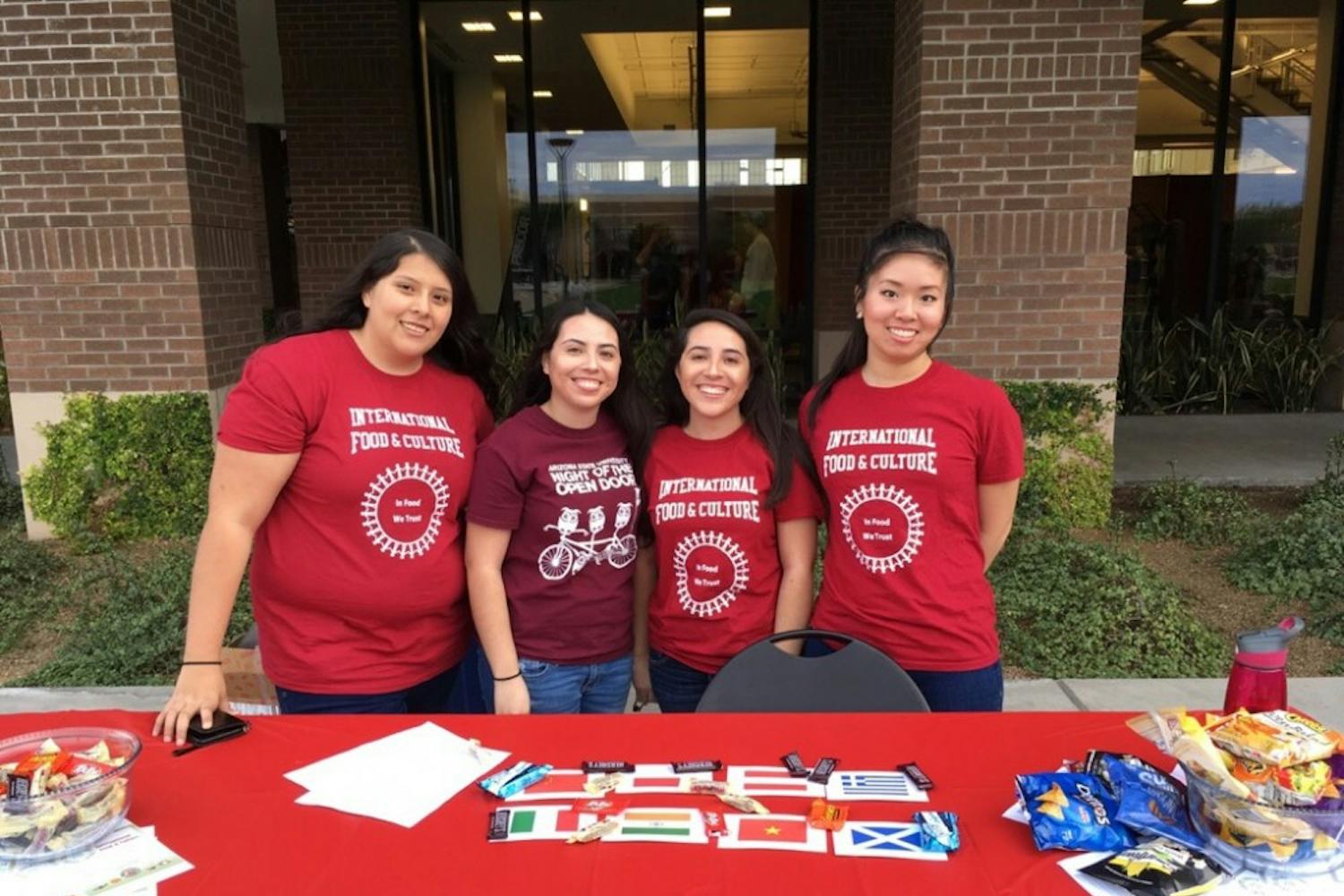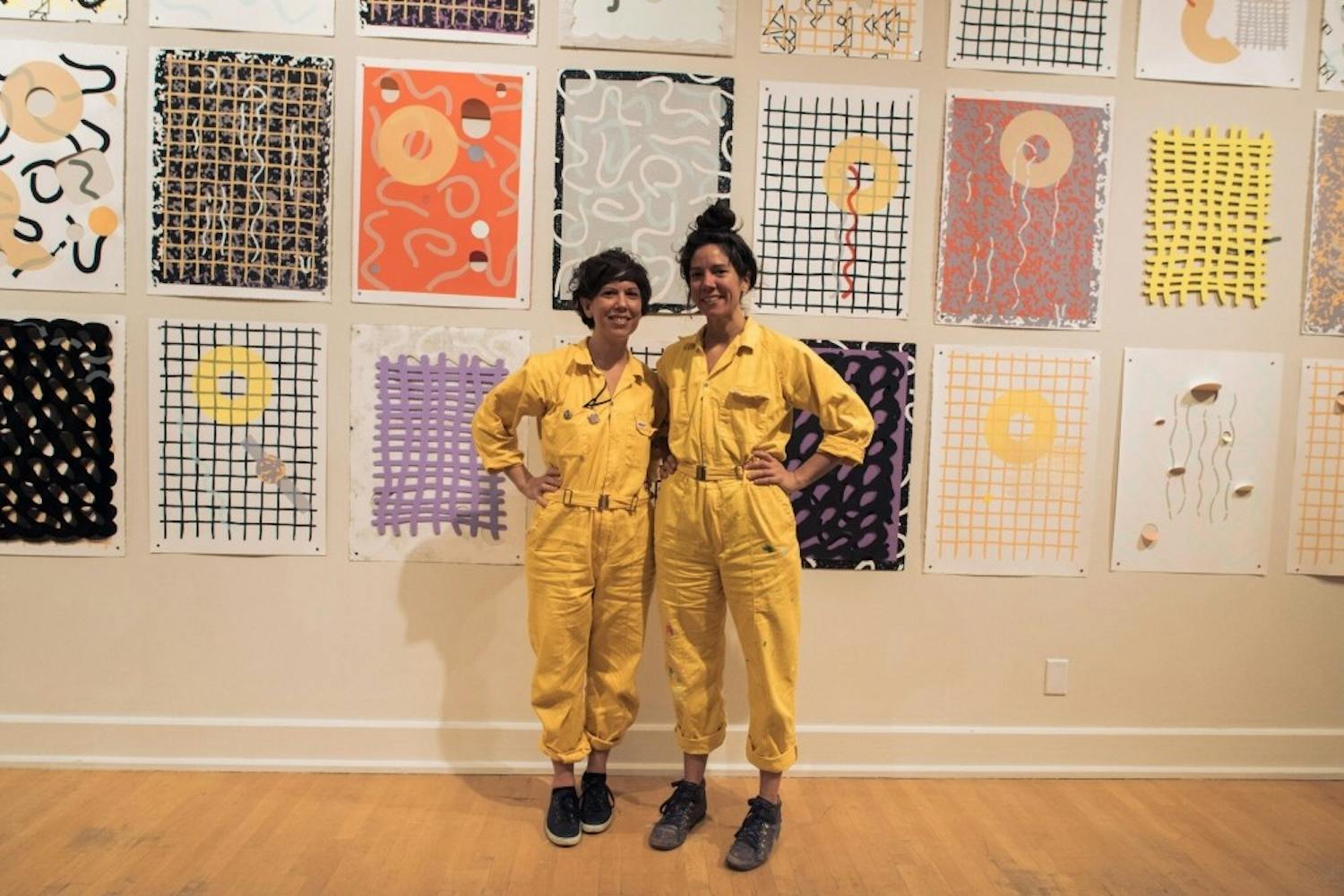Traditionally, when indie hip-hop band Gym Class Heroes set out on a tour, they were seen as an anomaly.
Not quite rock and not quite hip-hop, their interesting blend of musical styles has left the door open for them to tour with Fall Out Boy, Gwen Stefani, The All- American Rejects and some of the biggest names in rock music today.
Now, in a demonstration of their broad appeal, Gym Class Heroes has set out on a nationwide tour with two of hip-hop’s biggest stars — Lil Wayne and T-Pain. I recently spoke with Gym Class Heroes’ bassist Eric Roberts to discuss the band’s latest tour.
State Press: How does a hip-hop tour compare to your traditional rock tours? What are some similarities and some differences?
Eric Roberts: I’d say there is a pretty vast difference between playing a rock and a hip-hop concert, but at the same time there are definitely as close to, if not even more, similarities.
When it comes down to it, we’re playing to concertgoers. They’re there to have a good time regardless of who else is playing with whoever they’re seeing.
That’s always a plus, you know what I mean? You’re always going to get a pretty good crowd but at the same time you can definitely face challenges.
SP: How do the fans respond to the new tour, since Lil Wayne’s fans possibly differ from your fans?
ER: They’re all there to enjoy and appreciate and love music, but I just think that he has not as many young girls following the tour and their music as we do ours.
SP: Do you see a lot of those same kids come out to this tour? Like, when you did Warped Tour over the summer, are those same kids coming back now?
ER: Well there are different sections, you know? And you can actually see little pockets of a bunch of friends that have just come out and are obviously Gym Class Heroes fans going all out for the whole 25 minutes we’re up there.
We definitely still have a lot of our fans still coming out to see our shows, which is amazing because it’s definitely a different caliber than I’m sure they’re used to.
We’re not even all that used to it yet either but it’s awesome seeing them there.
SP: Is this a direction you see your band going in? Doing more hip-hop oriented tours?
ER: That’s the thing with us man, just like our records prove, I don’t think we ever know which direction we’re taking ourselves. This is definitely not going to be our new standard or anything.
SP: How does it feel to be playing big arenas? Do you guys have a preference between clubs and arenas?
ER: It’s definitely a little more intimidating because there are 30,000 people you’ve got to kind of pay attention to and make sure they feel a part of what you’re doing as well.
I guess we definitely have to change up our play style onstage, you know what I mean? We don’t have the full set that we’re used to. We just have to go up there and bang out our hits as quick as possible, and also try to get the crowd involved as much as possible.
It’s just basically like, if you come see us right now, it’s just like “boom, boom, boom” and then we’re out of there.
There’s definitely a huge difference than what we get from club crowds.
SP: Do you feel like in that 25-minute set you can connect with fans and win over new fans?
ER: Oh, yeah, definitely. This whole tour is just a huge potential for gaining new fans. I think everybody knows us for the “bababada” song [Cupid’s Chokehold] but then we go out there and play a couple licks off of our new record and I think we catch some people by surprise.
It’s cool — it’s cool to see. We’re definitely always out there to get more people interested in our music.
Reach the reporter at jdfourni@asu.edu.




